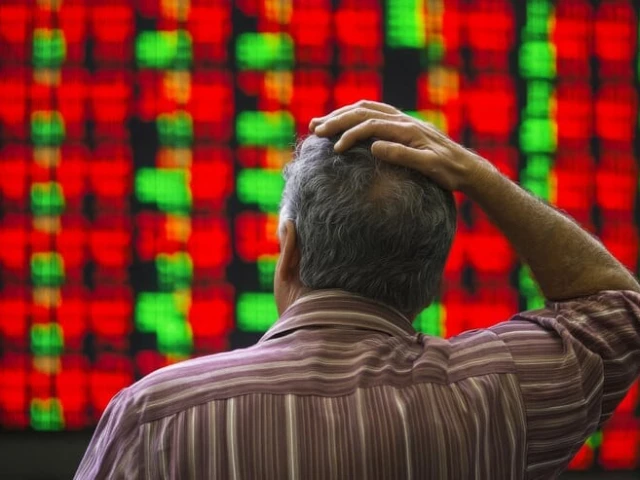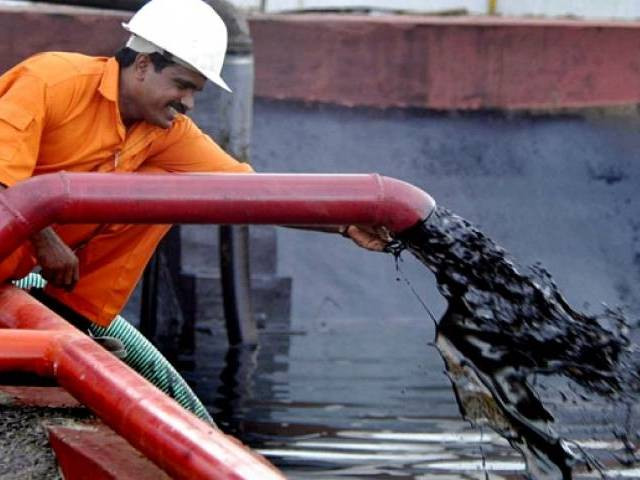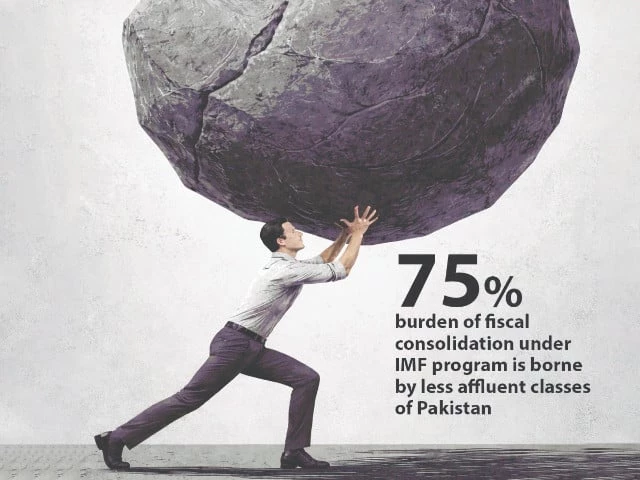Business
Rs40b fine on mills termed ‘wrong’ | The Express Tribune

ISLAMABAD:
Special Assistant to the Prime Minister on Industries and Production Haroon Akhtar Khan on Tuesday said that a fine of Rs40 billion on sugar mills imposed by the Competition Commission of Pakistan (CCP) was “politically motivated” and was totally wrong.
He ruled out that sugar millers were involved in recent prices hike; rather he argued that the price surge was due to a 20% decline in sugarcane output instead of market collusion.
Talking to journalists after attending the Auto Parts Summit 2025, organised by the Pakistan Association of Automotive Parts and Accessories Manufacturers (Paapam), the PM aide accused the former CCP chairperson of casting a double vote in the decision to impose the fine of Rs40 billion on sugar millers.
“I challenge the CCP’s decision about sugar mills, which is 100% wrong,” Haroon Akhtar said and advocated the “deregulation of ex-mill sugar prices” while the government should only keep reserve stocks.
“The sugar price solution lies in deregulation,” he said and dismissed the talk that the decision for sugar export was behind the price hike. He elaborated that the country had a two-year surplus of 1.5 million tons of sugar when the government allowed the commodity’s export.
The government kept 0.5 million tons as strategic stock and allowed export of 0.7 million tons. When the new crushing season started, the country had still surplus of around 0.5 million tons.
Haroon Akhtar said that the subsequent 20% drop in sugarcane output pushed down sugar production by about 1.4 million tons, triggering market tightness. “Mills are dispatching sugar at around Rs167 per kg,” he said, adding that they had made borrowing at nearly 22%.
While pushing for sugar price deregulation and keeping just strategic reserves, he noted that prices of other crops such as rice were not controlled. “Industries grow when the government exits price control,” he remarked.
The special assistant added that the commission’s stock analysis was “entirely flawed” and the tribunal had sent the order back. He questioned the voting process, alleging that there was a split decision where the then chairperson cast an additional vote.
He stressed that sugar was exported under a transparent process, which brought about $450 million in foreign exchange.
The PM aide also raised question about appointments in Utility Stores Corporation (USC) and stressed that the government would release overdue salaries of USC employees soon.
He announced the launch of a Voluntary Separation Scheme for permanent, temporary and daily-wage staff, with compensation for contract workers as well.
Regarding Pakistan Steel Mills, Haroon Akhtar said that the government wants to revive the entity through public-private partnership. A feasibility study is likely to be completed and the decision will be taken based on the study.
Speaking earlier as chief guest at the Auto Parts Summit, the special assistant to the PM said that the government was committed to enforcing the New Energy Vehicle (NEV) Policy 2025-30.
He said that the government was going to introduce a vehicle certification law that would mandate safety testing for both locally produced and imported used vehicles. The imported cars failing to comply will be sent back and the domestic ones will have to meet specified standards before launch.
Pakistan has signed the 1958 UN convention, which requires compliance with 169 standards. He said the country had so far met 17 standards and would expand coverage beyond four-wheelers to two- and three-wheelers as well.
“The government’s goal is not to shut car manufacturers or make vehicles expensive. Our task is to bring advanced policies,” he said, adding that they were working to introduce an updated auto policy next year alongside the existing EV framework.
Akhtar said seven major carmakers were producing vehicles locally and more than 1,200 auto parts manufacturers were also operating in the country. “The auto and parts ecosystem contributes about 3% to GDP and supports over 2.5 million jobs,” he said and acknowledged the expensive energy, limited access to technology and financing.
The government has reduced interest rates and energy prices and is steering towards export-led growth, Akhtar said and urged manufacturers to invest in R&D and modern technology to meet global quality benchmarks.
Regarding recent engagements with Chinese firms and the visit to Tokyo, the PM aide said that Japanese officials had raised concerns about tariff protection. He pointed out that prior tariff measures were aimed at curbing imports and raising revenue, which incidentally provided protection.
He added that the forthcoming industrial policy would set the direction on taxation, interest rates and energy tariffs. It will also pitch Pakistan not merely as a market but as an export base. “Build vehicles of that quality here and export from Pakistan,” he said.
While addressing the summit, auto parts makers criticised the government for protecting the import of used cars. They also denounced the lack of political stability and inconsistency in policies that halted growth in the auto sector.
Paapam Chairman Usman Malik said that developed countries were protecting their auto industries and even the United States was saving its industry through tariffs.
Business
Two ships hit near Strait of Hormuz as fears grow of oil price rises
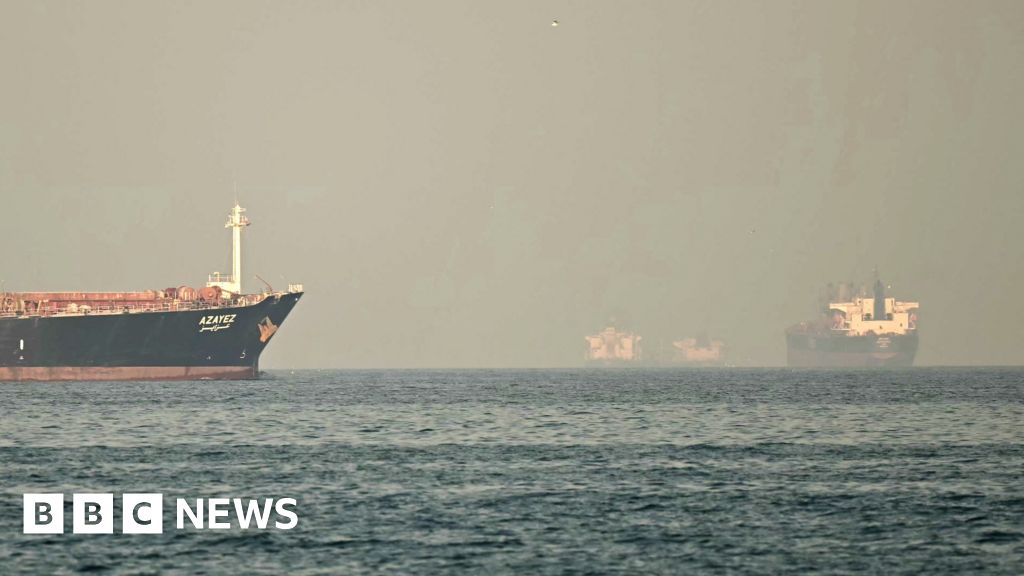
International shipping is said to have come to a standstill at the strait’s entrance, with fears of disruption already pushing up global oil prices.
Source link
Business
Khamenei dead, Middle East on edge: What will be the implications of Trump’s ‘Epic fury’ on stock markets, gold & oil? – The Times of India

The global markets are in for a phase of enhanced turmoil and uncertainty! The ongoing tensions in the Middle East after US and Israel’s strikes on Iran and Ali Khamenei’s death may have investors running for cover – looking for an asset class that is safer.During the night of February 27–28, the United States and Israel carried out joint aerial strikes on Iran as part of “Operation Epic Fury.” Statements by President Trump openly referring to regime change suggest that the confrontation could evolve into a prolonged campaign rather than remain a limited exchange, say market analysts at Franklin Templeton Institute.What does the situation mean for stock markets, energy markets (oil), gold and other asset classes? Here’s what Franklin Templeton Institute analysts have to say:From a market perspective, the key uncertainty is whether the conflict remains confined to direct military engagement or expands into disruptions affecting energy supplies and logistics networks, which would sustain a higher and more persistent risk premium.At the centre of the ongoing uncertainty from a global market and trade perspective is the Strait of Hormuz. While a complete blockade would carry severe consequences for Iran itself, the country has the capability to disrupt maritime traffic through tactics such as vessel harassment, seizures, drone activity, cyber operations, or the use of proxy forces.
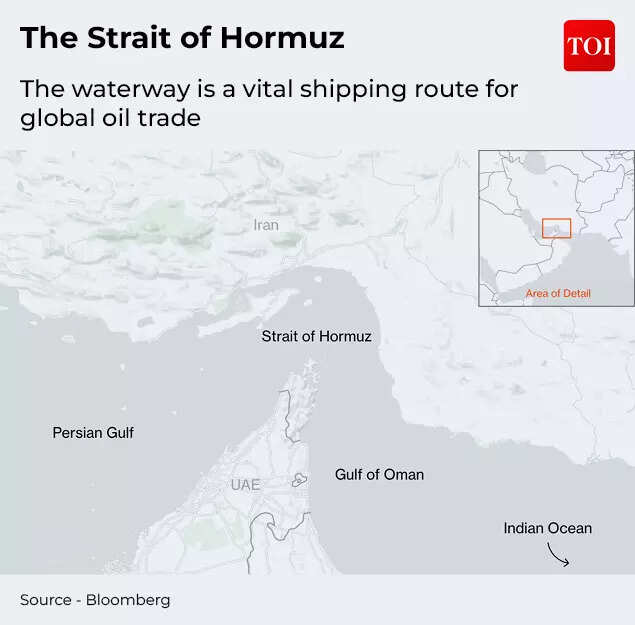
Strait of Hormuz
The most immediate economic impact is expected in energy markets, where crude oil and natural gas prices are likely to move higher, they say. Such actions, feel analysts, will keep geopolitical risk premiums at high levels. In 2024, approximately 20 million barrels per day moved through the Strait of Hormuz, which is around one-fifth of global petroleum liquids consumption. Even a limited interference – which can be caused by delays, rerouting, or isolated seizure – can push prices higher through increased risk perception well before any actual shortages emerge.Liquefied natural gas should not be overlooked in this context. Qatar has the world’s third-largest LNG export capacity, and roughly one-fifth of global LNG shipments pass through the Strait of Hormuz, largely consisting of Qatari exports. As a result, shipping risks in the region affect gas markets as significantly as oil markets.Also Read | US-Israel strikes on Iran: How will India be hit by Strait of Hormuz closure? ExplainedShipping expenses have already begun to rise, with insurance costs acting as a major driver. Insurers have started issuing cancellation notices and revising war-risk premiums for voyages in the Gulf region. Some routes have reportedly seen premium increases of up to about 50%, while earlier periods of tension recorded rises exceeding 60% on important trade corridors. These developments effectively tighten supply conditions even when production levels remain unchanged.The possibility of the conflict spreading across the region is increasing. Franklin Templeton Institute analysts are of the view that across global financial markets, the immediate response to such shocks is usually driven by adjustments in risk perception rather than by underlying economic changes. “The initial market reaction for this type of event would typically see Treasury yields move lower and equities lower—mostly a risk-premium repricing. Impacts on activity/earnings may be delayed and uneven. The US dollar reaction is not guaranteed; gold tends to benefit while bitcoin has been trading like a risk asset (i.e., down with equities), reinforcing that it’s not typically a reliable hedge/diversifier in geopolitical drawdowns,” say Franklin Templeton Institute analysts.However, they note that experience shows markets often come to view geopolitical disruptions as temporary. Initial spikes in risk premiums are frequently followed by the realization that the overall effect on corporate profitability is limited. The duration of the conflict, developments in shipping and insurance costs, and the eventual resolution will be more important than the initial headlines.“We would not yet label this a clean buy-the-dip setup—duration, shipping/insurance mechanics, and the endgame matter more than the first headline,” they say.From an investment perspective, the near-term outlook favours sectors linked to energy markets, as well as companies benefiting from higher shipping and insurance costs, along with defence-related industries, the analysts say. At the same time, caution is warranted toward emerging markets that depend heavily on energy imports and toward cyclical sectors sensitive to fuel and logistics costs, including airlines and certain industrial segments.“For protection, we prefer oil upside/volatility structures and selective gold exposure over broad equity shorts—the path will be driven more by shipping/insurance reality than by the new cycle,” they conclude.
Business
Oil jumps 10% and could spike to $100 a barrel, analysts warn

Brent crude jumped 10% to about $80 a barrel over the counter on Sunday, oil traders said, while analysts predicted that prices could climb as high as $100 after U.S. and Israeli strikes on Iran plunged the Middle East into a new war.
The primary driver of this market volatility is the critical Strait of Hormuz. Ajay Parmar, director of energy and refining at ICIS, stated: “While the military attacks are themselves supportive for oil prices, the key factor here is the closing of the Strait of Hormuz.”
Most tanker owners, oil majors and trading houses have suspended crude oil, fuel and liquefied natural gas shipments via the Strait of Hormuz, trade sources said, after Tehran warned ships against moving through the waterway. More than 20% of global oil is moved through the Strait of Hormuz.
“We expect prices to open (after the weekend) much closer to $100 a barrel and perhaps exceed that level if we see a prolonged outage of the Strait,” Parmar said.
Middle East leaders have warned Washington that a war on Iran could lead to oil prices jumping to more than $100 a barrel, said RBC analyst Helima Croft. Barclays analysts also said prices could hit $100.
The OPEC+ group of oil producers agreed on Sunday to raise output by 206,000 barrels per day (bpd) from April, a modest increase representing less than 0.2% of global demand.
While some alternate infrastructure could be used to bypass the Strait of Hormuz, the net impact from its closure would be a loss of 8 million to 10 million bpd of crude oil supply even after diverting some flows through Saudi Arabia’s East-West pipeline and Abu Dhabi pipeline, said Rystad energy economist Jorge Leon.
Rystad expects prices to rise by $20 to about $92 a barrel when trade opens.
The Iran crisis also prompted Asian governments and refiners to assess oil stockpiles and alternative shipping routes and supplies.
-

 Politics1 week ago
Politics1 week agoPakistan carries out precision strikes on seven militant hideouts in Afghanistan
-

 Business1 week ago
Business1 week agoEye-popping rise in one year: Betting on just gold and silver for long-term wealth creation? Think again! – The Times of India
-

 Sports1 week ago
Sports1 week agoKansas’ Darryn Peterson misses most of 2nd half with cramping
-

 Business1 week ago
Business1 week agoEquinox chairman says ‘health is the new luxury’ as wellness spending soars
-

 Tech1 week ago
Tech1 week agoThe Supreme Court’s Tariff Ruling Won’t Bring Car Prices Back to Earth
-

 Entertainment1 week ago
Entertainment1 week agoViral monkey Punch makes IKEA toy global sensation: Here’s what it costs
-

 Tech1 week ago
Tech1 week agoThese Cheap Noise-Cancelling Sony Headphones Are Even Cheaper Right Now
-

 Entertainment1 week ago
Entertainment1 week agoSaturday Sessions: Say She She performs "Under the Sun"


